🎶 A community for classical music and opera lovers, bringing this wonderful world closer to a younger audience 🎶
Don't wanna be here? Send us removal request.
Text
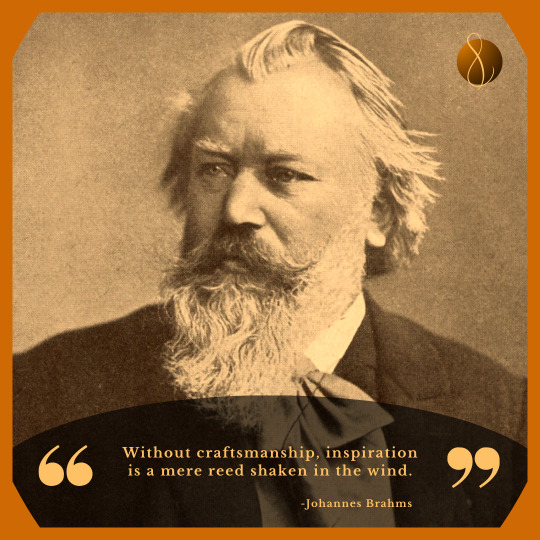
Creativity is something that is crafted, harnessed and shaped. Creativity in itself doesn't create anything.
Johannes Brahms (1833–1897) was a German composer and pianist of the Romantic era, whose music is celebrated for its depth, richness, and structural complexity. His compositions encompass a wide range of genres, including symphonies, chamber music, piano works, and choral compositions. Brahms was known for his meticulous craftsmanship and adherence to classical forms, earning him a reputation as a successor to Beethoven. His symphonies, particularly the monumental Symphony No. 4, are considered masterpieces, showcasing his mastery of orchestration and emotional depth.
Beyond his musical prowess, Brahms was a private and introspective individual, and his compositions often reflect a profound exploration of human emotions. His legacy endures as his works continue to be integral to the classical repertoire, influencing generations of musicians and listeners alike.
Do you agree with him?
#classical music#music#classical composers#art#inspiration#quoteoftheday#spirituality#brahms#johannes brahms#romanticism#romantic#operatic#symphony#love#creativity#Spotify
5 notes
·
View notes
Text
Tchaikovsky + Karajan = Symphony at its finest 🎶✨
What does this “formula” mean?
Herbert von Karajan (1908-1989) was an influential and renowned Austrian conductor and music director, seen conducting the Berlin Philharmonic Orchestra (@berlinphil), one of the most renown orchestras in the world. Karajan’s leadership transformed the world of conducting, known for his technical precision and artistic excellence.
On the other hand, the music of Tchaikovsky is incredibly profound and emotional, as opposed to more “structured” forms from the previous eras (Haydn or Mozart). This allows for much more expression from the conductor and the orchestra, which is one of the things that set Karajan apart as a conductor.
We invite you to go listen to a recording of Karajan with this orchestra, close your eyes and let your mind float away.
#classical music#music#classical composers#art#inspiration#opera#karajan#tchaikovsky#romantic#romanticism#symphony#conductor#maestro#old music
8 notes
·
View notes
Text
Remembering a very important female figure in early music:
Élisabeth Jacquet de La Guerre (1665-1729)
Often not mentioned enough, she was a remarkable French composer and musician of the late Baroque era. A pioneering figure in a time when female composers were rare.
Elisabeth was a virtuoso harpsichordist and a celebrated opera singer at the court of Louis XIV. Her notable compositions include solo keyboard works, cantatas, and chamber music. Her significance lies not only in her musical prowess but also in breaking gender barriers in the male-dominated world of 17th-century classical music, leaving a lasting legacy for female composers and musicians to come.
What's your favorite piece by her?
#classical music#music#classical composers#art#inspiration#harpsichordist#harpsicord#female#female musicians#female composer#baroque#sonata#concerto#suite#Spotify
4 notes
·
View notes
Text
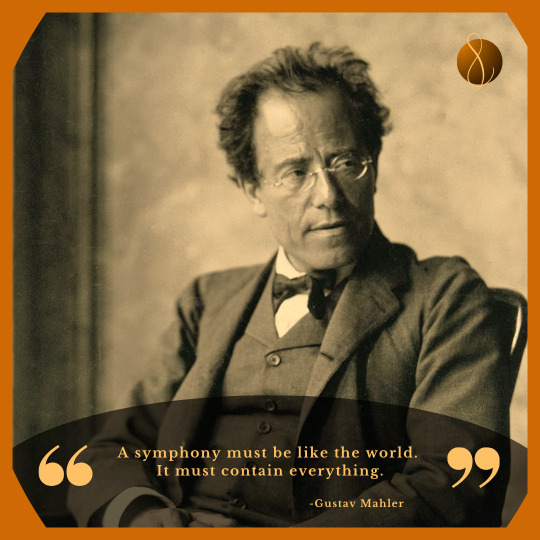
Not just the good, not just the bad, but everything ✨
Gustav Mahler (1860-1911) was a towering figure in late Romantic music, known for his emotionally rich and expansive symphonies. As a composer and conductor, he bridged the 19th and 20th centuries, pushing the boundaries of orchestral music with his innovative use of orchestration and themes of existential struggle and transcendence.
His symphonies are vast, often exploring the depths of human emotion and the complexities of life. Mahler’s works are renowned for their intensity, intricate harmonies, and deep philosophical underpinnings, making him one of the most influential composers of his era and leaving a lasting legacy in the world of classical music.
What’s your favorite piece of his?
#classical music#music#classical composers#art#inspiration#spirituality#quoteoftheday#mahler#gustavmahler#romantic#romanticism#symphony#epic#adagietto#Spotify
2 notes
·
View notes
Text
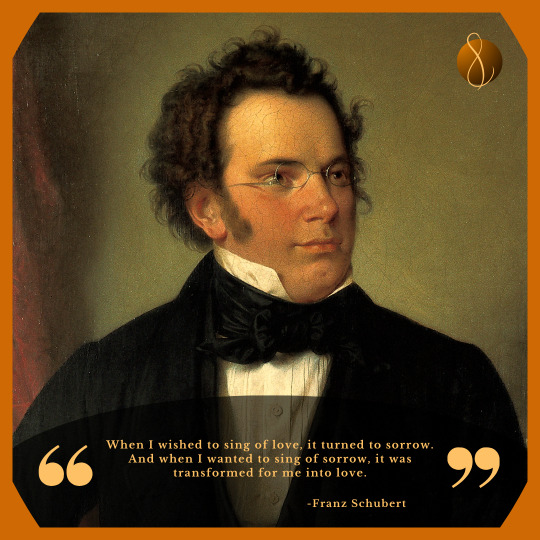
Thoughts from Schubert himself 🎶💫
Franz Schubert (1797-1828) was an Austrian composer who is widely regarded as one of the most significant figures of the Romantic era in music. He was born in Vienna and showed prodigious musical talent from a young age.
Although he only lived to the age of 31, Schubert's symphonic compositions, including his "Unfinished Symphony" and "Great Symphony" (Symphony No. 9), left a significant mark on the development of symphonic music in the 19th century
What's your favorite piece of his?
#classical music#music#classical composers#art#inspiration#quoteoftheday#schubert#franz schubert#symphony#old music#Operatic#Spotify
15 notes
·
View notes
Text
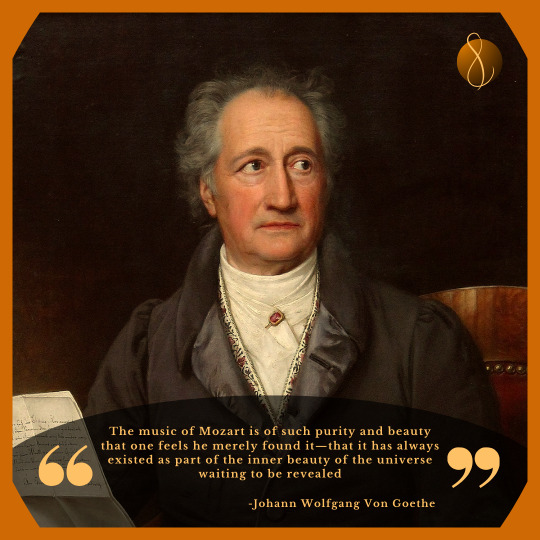
The famous writer dedicates some words to Mozart 📝
Having lived roughly on the same period and dealing with art each in its own form (writer and musician), Goethe and Mozart excelled at their craft and it’s beautiful to see the former appreciate the uniqueness of the latter.
Many prominent historical figures such as this pair shared respect and admiration for one another, and this page seeks to bring out how the reality and relationships between artists back then was not as different as today as we might think.
#classical music#music#classical composers#art#inspiration#opera#quoteoftheday#goethe#mozart#johann wolfgang von goethe#writer#classical art
11 notes
·
View notes
Text
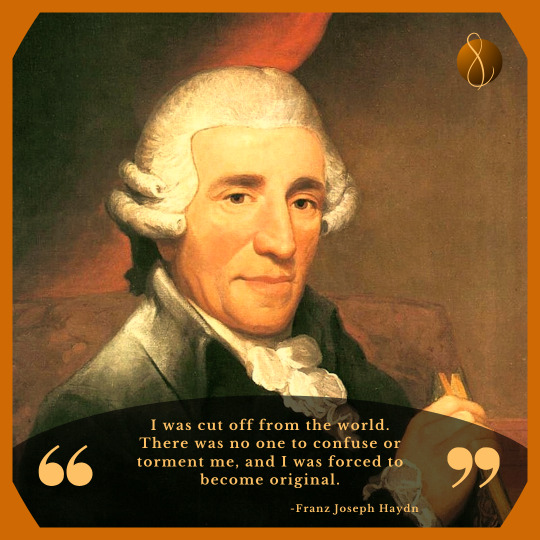
The father of symphonic music 🎶✨
This short quote gives us valuable insight on the life that Haydn had to lead in order to carry his creative process that originated the symphony as a defined musical structure.
He taught Mozart most of his knowledge and were close friends during a big period of their lives, not failing to give each other infinite mutual respect and even dedicating themselves musical compositions.
What's your favorite music piece of his?
#classical music#music#classical composers#art#inspiration#quoteoftheday#quote#haydn#symphony#mozart#operatic#Spotify
3 notes
·
View notes
Text
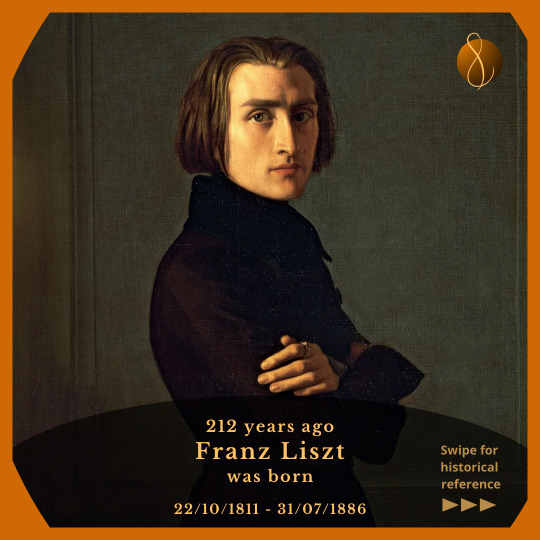
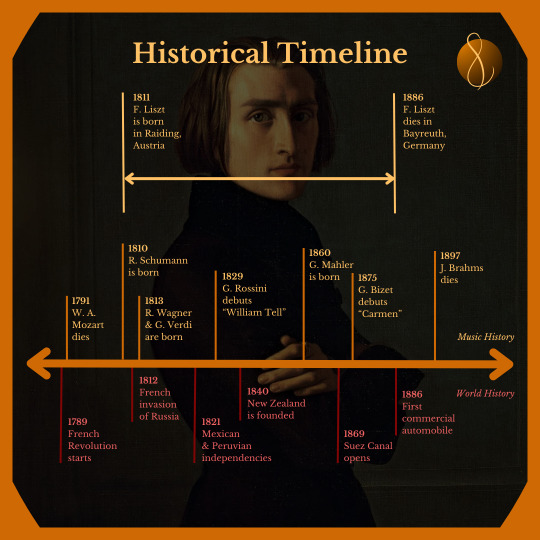
Happy Birthday Franz Liszt 🎈✨
A trailblazer of the romantic era. Here are some historical references so you can pinpoint his life in time.
What’s your favorite piece of his? ⬇️
#classical music#music#classical composers#opera#inspiration#liszt#franz liszt#romantic#romantic composer#romanticism#Spotify
1 note
·
View note
Text
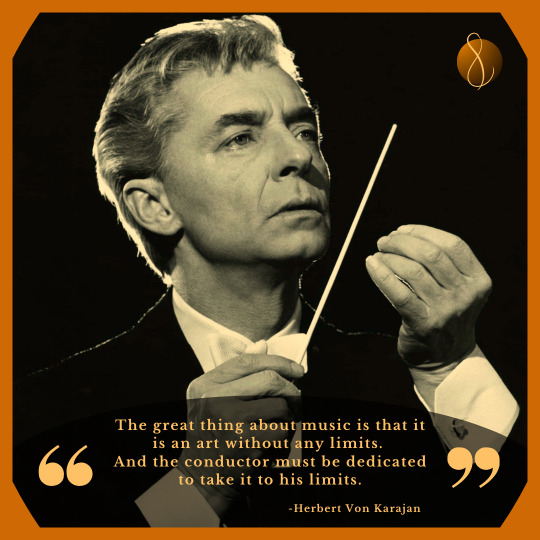
#classical music#music#classical composers#opera#inspiration#art#karajan#herbert von karajan#life quote#quoteoftheday#quotes#conductor
10 notes
·
View notes
Text
#OnThisDay on 1849 Frederic Chopin died.
Frederic Chopin, the iconic composer and pianist of the Romantic era, was as enigmatic as his music was enchanting. Born in 1810 in a small village in Poland, he was a child prodigy who quickly demonstrated his remarkable musical talents. At the age of seven, he performed for the Russian Grand Duke Constantine, and by his teenage years, he was already composing works that hinted at the emotional depth and technical brilliance that would define his legacy.
Chopin's life, though relatively brief, was marked by a tumultuous journey. He eventually left his homeland and settled in Paris, a hub of artistic creativity in the 19th century. His music, characterized by its exquisite lyricism and emotional depth, is often associated with the expression of personal sentiments, and his compositions, particularly the Nocturnes and Polonaises, continue to captivate audiences with their delicate beauty and fiery nationalism. Chopin's music remains a testament to the profound connection between art and the human soul, a timeless source of inspiration for musicians and listeners alike, reminding us that even in the briefest of lives, one can leave an everlasting imprint on the world.
#classical music#music#classical composers#art#spirituality#inspiration#chopin#death#romantic#pianist#nocturne#passion#emotion#sad#romantic composer#romanticism#operatic#monument#on this day#spotify
4 notes
·
View notes
Text
You’re listening to Mozart’s last written notes 🎶✝️
This beautiful passage, Lacrimosa, belongs to the Requiem written by the composer in his last months of life. In fact, all he managed to write before his death was the Introitus, Kyrie and Lacrimosa, just three out of many passages corresponding to a full traditional mass for the dead in Latin language.
This composition is one of the most thrilling pieces of music ever written, connecting the concepts of life and death through music in a way never seen before at the time, and a crucial rise for this type of music structure that gives birth to other famous Requiem masses such as Verdi’s and Faure’s.
Mozart died in 1791 at 35 years old having written more than 600 works through a life that wasn’t easy in any sense. Alfred Einstein’s biography of Mozart is one of the best out there, if you are interested in discovering more about this prestigious composer.
His life and work gave music and society more than we could have ever asked for.
#classical music#music#classical composers#art#spirituality#inspiration#mozart#requiem#wolfgang#death#mass#church#christianity#spiritual#choir#choir music#composition
7 notes
·
View notes
Text
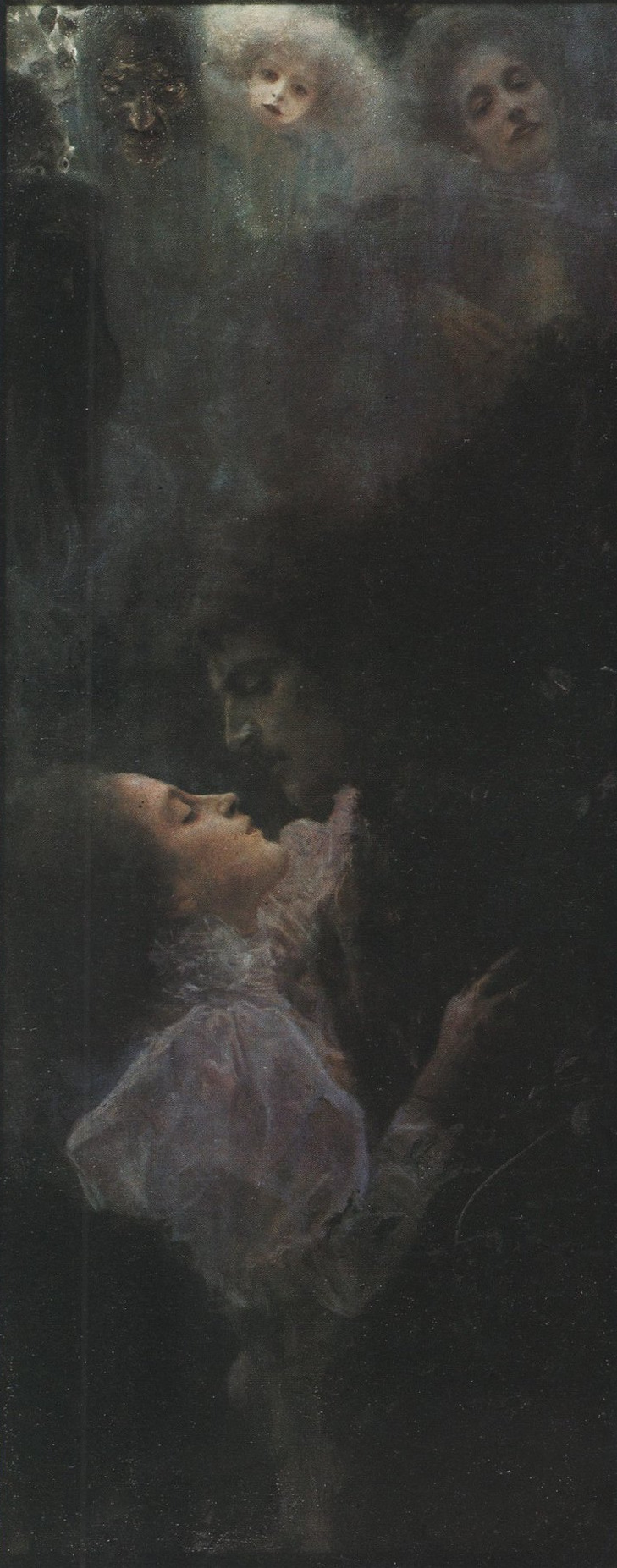
Gustav Klimt (Austrian, 1862-1918) Love, 1895
11K notes
·
View notes
Text
Sunday Meditations ✨🎶
Time doesn't stop, but we can. The scenes around us often treasure valuable moments that, though laid out in front of our eyes, are omitted by our occupied minds.
Any form of meditation, of attempting to capture the here and the now, reconnects us with our own humanity. And music plays a big role in this exercise. It can estimulate and help maintain a focused mind amidst trouble and preoccupations.
The piece featured in the video is J.S. Bach's Concerto in D Minor (BWV 974), which is based on Alessandro Marcello's Oboe Concerto in D Minor. Interpreted by the great @vikingurolafsson.
The snippet comes from the second movement, which features a calm melody that despite having a well marked tempo, it seems to linger in the air.
Have you had a moment of meditation this weekend?
#classical music#music#classical composers#art#opera#spirituality#bach#inspiration#operaworld#operatic#Forlì#Bologna#Italy#vitalenta#piano
1 note
·
View note
Text
We have our splendid Adagio playlist
Enjoy it here:
GUYSSSS
Send me ur fav songs or just send me songs/playlists u might think I like. Anon or dm me whatever. I need more music!!! Thankss
#classical music#classical composers#music#adagio#slow#calm#Spotify#opera#mozart#beethoven#schumann#schubert#baroque#romantic
19 notes
·
View notes
Text
Both REALLY good operas! ❤️
Propaganda
Tannhäuser
A girlboss, a pathetic little tenor and a woman desperately trying to fix him, what more do you need?
We all know Richard Wagner was a terrible person, but he managed to write one very good opera and it's Tannhäuser. The plot: a medieval Minnesänger has spent some time living the hippie life in the grotto of the pagan goddess of love -- can he return to the Christian society he came from? He will not, he will die, this is Wagner after all. But the music along the way is excellent.
20 notes
·
View notes
Text
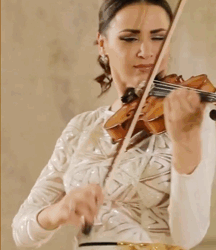
Rusana Panfili playing Pablo de Sarasate 🎻✨
#classical music#music#classical composers#art#pablo de sarasate#sarasate#spain#violin#violin concerto
1 note
·
View note
Text
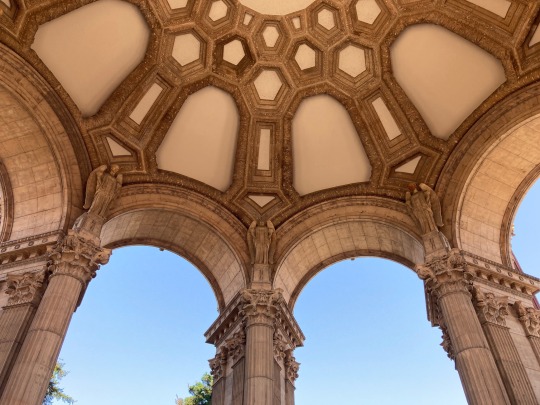
Listening to this amazing concerto today 🎻✨
Do you know it?
#classical music#music#art#spotify#classical composers#sarasate#pablo de sarasate#spain#violin#concerto
1 note
·
View note